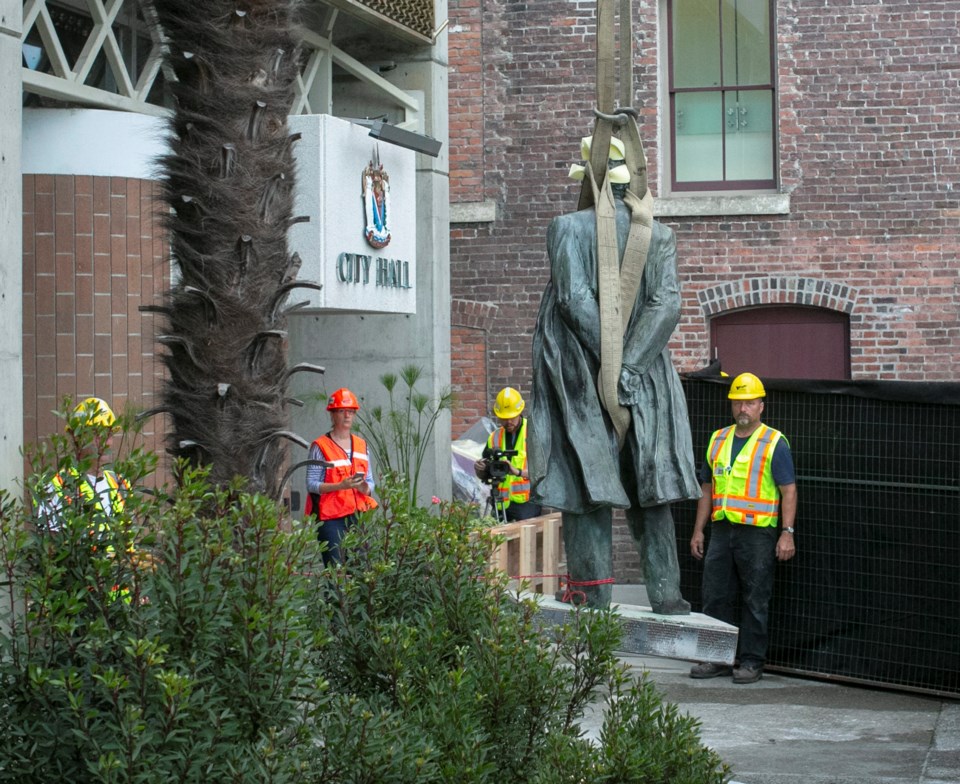Some parents and pupils want a new name for École George Jay in Victoria. The elementary school is named after a onetime chair of the Victoria school board, George Jay. He reigned from 1907 to 1934.
The complaint is that Jay espoused segregationist policies by which Chinese students were kept separate from their Caucasian classmates. He also wanted foreign-born pupils tested for proficiency in English.
This is, regrettably, just the latest in a series of attempts to bury historical context. Last year Victoria city council had the statue of sa���ʴ�ý’s first prime minister, Sir John A. Macdonald, removed from the grounds of city hall. I believe it’s in storage now, where ideally it would be accompanied by the people who put it there.
What’s missing from these attempts to impose retroactive justice is an almost complete blindness to historical realities.
Could we possibly adopt, suitably modified, a long-standing precept that’s found in law. This precept holds that someone cannot be convicted of a crime, if no such crime existed on the law books when it was committed.
Macdonald stands accused of fathering the residential school system in which, at a later date, aboriginal children were subjected to infamous treatment. But in his time, there was no way to foresee this.
Indeed, all Macdonald did was accept the advice of experts in child psychology and pedagogy. What was he supposed to do? Get out a crystal ball and peer into the future?
Did he hold racist views? I’m sure he did. You would have gone a very long way in those days to find someone who did not. Indeed, racism, sexism, homophobia and a host of other ugly beliefs were part of everyday life.
That doesn’t make them right. But it does excuse those who held them, in that the prevailing ethics at the time supported such views.
Put another way, you can’t reach back into history and find fault with an individual when no such fault was understood to exist. Scarcely a single human being down the ages would survive such a scrutiny. You would have to indict our entire species.
What you can do is indict prior belief systems. You can expound at length on the evils of hounding gays, holding women inferior to men, and sending seven-year-old boys to clean chimneys, a measurable number of whom contracted testicular cancer before the age of 10.
But indicting a system is a different matter than shaming the individuals who laboured under it.
Now here is a counter argument. Am I saying that schools in Germany named after Adolf Hitler should keep their name?
No, because the inhumanities he forced on captive peoples were, at that time, widely recognized to be wrong. You cannot wall off your field of conquest, and consider yourself exempt from the moral compass that guides the world around you.
By contrast, no one would reasonably suggest Macdonald was installing a policy that more enlightened countries would have abhorred.
Let’s subject ourselves to this particular form of hindsight. Since society continually evolves, it is a certainty that some of the views we currently hold, indeed take as morally imperative, will one day be reviled.
A possible example: Owning a pet.
We will all be George Jay or Sir John A. at some point in the future. But now ask yourself this question.
As a good and decent person, what are you to do in order to avoid such revilement? The answer is you can do nothing, for you have no means of knowing how a future generation may differ in its ethical standards.
There is another aspect to consider. Our society will never heal if we continually dig up evils from the past and demand some form of retribution.
The idea is inculcated that nothing has changed, that our nation is scarcely less racist and wicked as it was in days gone by. The wrongs of history are ever to be with us.
Nothing good can come of this.



